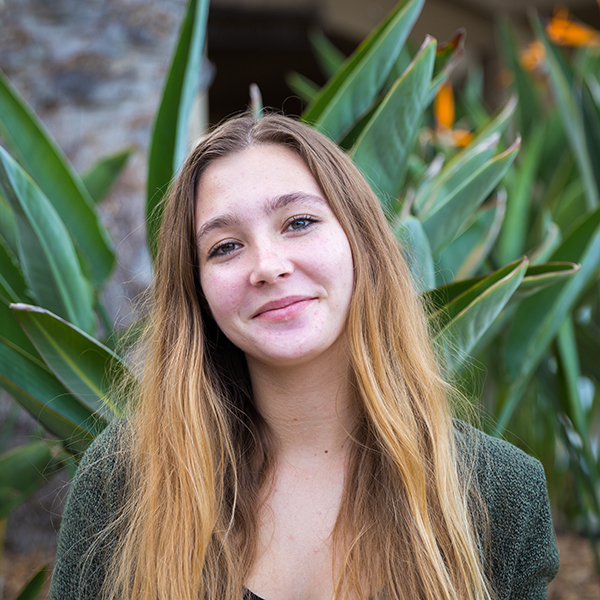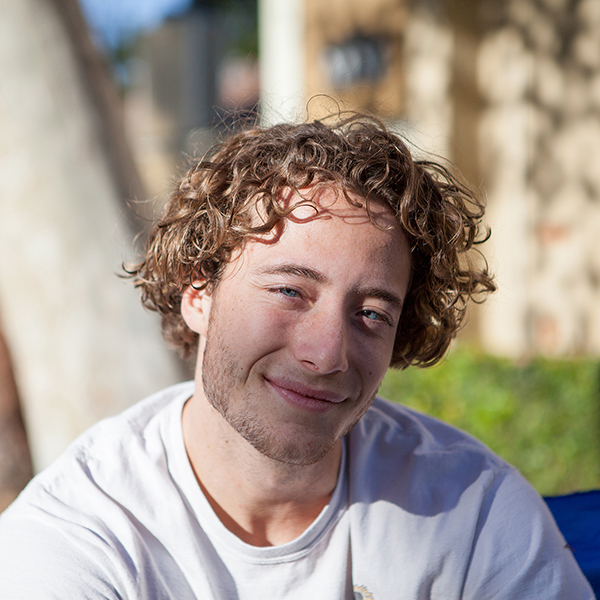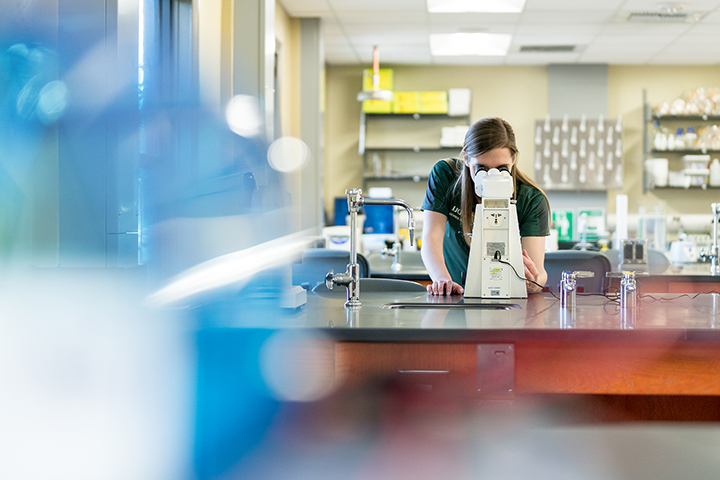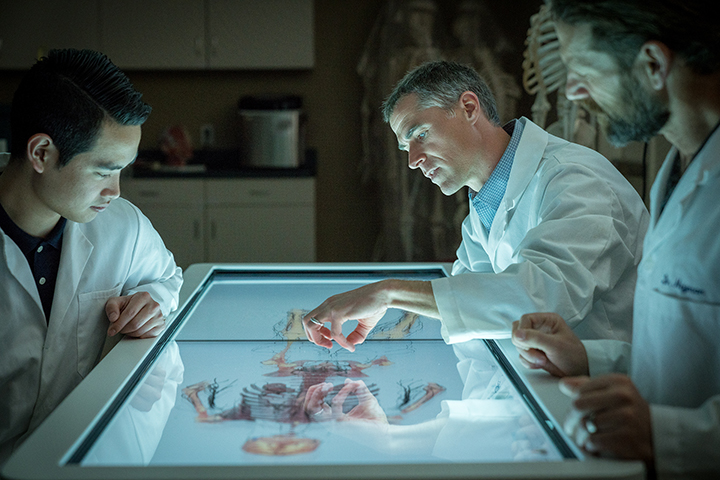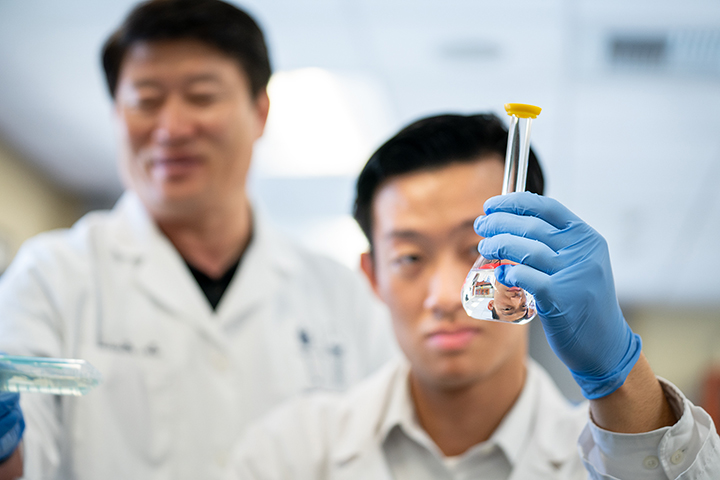
Chemistry, BS
A chemist can measure the amount of insecticide in drinking water, compare the protein content of meats, develop a new antibiotic, analyze a moon rock or design a synthetic fiber.
Program Intro
The work of a chemist ranges widely, and at its heart, it helps us understand the world around us. Why do leaves turn colors in the fall? Why is a diamond hard? How does soap clean? All of these questions can be answered with chemistry.
Why Study Chemistry at CBU?
Research and learn in laboratories
At CBU, chemistry courses are taught by full-time faculty members in state-of-the-art labs, giving students both hands-on experience and individual attention. While you may see more labs and equipment at other universities, the question to ask is “Will I get to use these labs?” At CBU the answer is yes — everything we have is accessible to our undergraduate chemistry majors.
Prepare for a career in the field
Graduates of CBU’s chemistry program have gone on to work in industries that produce medicine, plastics and thousands of other everyday materials; while others now conduct research for academic, government and industrial organizations to try to better understand and potentially solve significant problems, such as alternative fuels and climate change. A chemistry major is also excellent preparation for medical school, pharmacy school and other professional schools.
What You'll Learn
- Students will be able to demonstrate spiritual literacy, including biblical Christian
faith and practice, Baptist perspectives, and the Christian's role in fulfilling the
Great Commission.
- Students will be able to use the peer-reviewed scientific literature effectively and
evaluate technical articles critically.
- Students will demonstrate proficiency in accurately conveying scientific data both
orally and in writing.
- Upon completion of each year of chemistry coursework (general, organic, analytical
and physical), students will attain knowledge comparable to national standards in
these areas of chemistry.
- Students will be able to apply appropriate technology (including molecular modeling)
and mathematical tools to their study of chemistry.
- Students will be able to apply instrumental and other laboratory techniques to laboratory-based
problems.
- Students should be able to define problems clearly, develop testable hypotheses, design
and execute experiments, analyze data using appropriate statistical methods and draw
appropriate conclusions.
- Students will understand the concepts of safe laboratory practices and how to apply
them.
- Students should be able to work in a group to solve scientific problems, be effective
leaders as well as effective team members, and interact productively with a diverse
group of peers.
- Students will conduct themselves responsibly and be aware of the role of chemistry in contemporary societal and global issues.
Program Details
CHE 321: Quantitative Chemical Analysis with Lab
A survey of separation and quantitation principles and methods.
CHE 351: Organic Chemistry I with Lab
An integrated mechanistic study of the nomenclature, chemical, and stereochemical properties of aliphatic hydrocarbons.
CHE 470: Instrumental Analysis
This course is a study of instrumental methods of analysis including spectroscopic, chromatographic, and electrochemical techniques.

Jenifer Nalbandian, Ph.D.
Associate Professor of Chemistry
Office Phone: 951-343-4306
E-mail: jnalbandian@calbaptist.edu
Office Location: James 478

Satoru Suzuki, Ph.D.
Professor of Chemistry
Office Phone: 951-552-8726
E-mail: ssuzuki@calbaptist.edu
Office Location: James Building, 466
Career Possibilities
Graduates of CBU's chemistry bachelor's program will be well prepared for various careers and/or graduate school. Some careers listed below may require further education.
- Biotechnologist
- Product Developer
- Qualitative Analyst
- Quantitative Analyst
- Chemical Engineer
- Chemistry Teacher
- Forensic Science Technician
- Doctor
Related Programs
Next Steps
Join our community. At CBU, you’ll be challenged to become an individual whose skills, integrity, and sense of purpose glorify God and distinguish you in the world.

